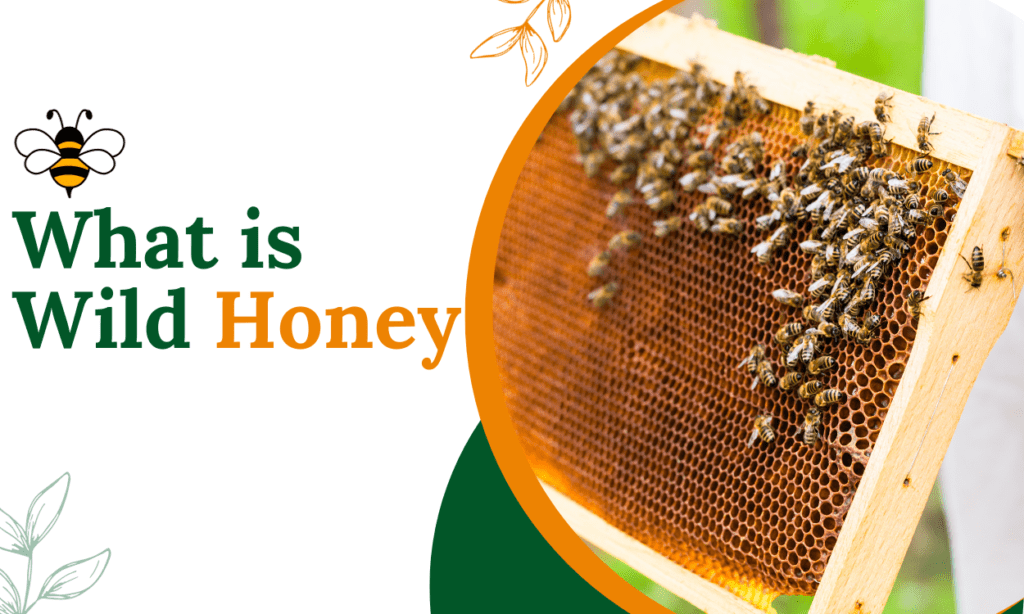

What is Wild Honey, All You Need To know
In the realm of natural wonders, few things captivate our senses and nourish our bodies like wild honey. This exquisite creation of nature has intrigued and delighted humans for centuries. In this blog, we will delve into the fascinating world of wild honey, exploring its origins, diverse varieties, nutritional value, health benefits, culinary uses, and the importance of ethical harvesting and sustainability.
The Origins of Wild Honey
Wild honey, often referred to as “nature’s liquid gold,” is the product of bees foraging nectar from an array of wildflowers and plants in their natural habitats. Unlike regular honey, which is produced by domesticated bees in managed hives, wild honey is the result of bees’ instinctive exploration of untamed landscapes.
The Different Types of Wild Honey
Wild honey comes in various types, each characterized by the unique flora and geography of its source. Some of the most famous varieties include
1. Manuka Honey
2. Acacia Honey
3. Chestnut Honey
4. Lavender Honey
5. Eucalyptus Honey
Nutritional Value of Wild Honey
Wild honey is more than just a sweet treat; it’s a treasure trove of nutrients. It is packed with vitamins, minerals, and antioxidants that contribute to its exceptional health benefits.
Health Benefits of Consuming Wild Honey
The consumption of wild honey is associated with a range of health benefits, including:
1. Enhanced Immunity
2. Soothing Sore Throats
3. Wound Healing
4. Digestive Aid
5. Allergy Relief
Culinary Uses of Wild Honey
The rich and diverse flavors of wild honey make it a coveted ingredient in the culinary world. It can be used in a variety of dishes, including:
1. Salad Dressings
2. Marinades
3. Desserts
4. Beverages
5. Glazes
How to Harvest Wild Honey Ethically
Harvesting wild honey requires a deep respect for the bees and their natural habitats. Ethical harvesting methods include:
1. Sustainable Beekeeping Practices
2. Minimal Disturbance to Bee Colonies
3. Respect for Bee Flight Paths
4. Protection of Native Flora
Sustainable Practices in Wild Honey Production
Sustainability is key to preserving the delicate balance of ecosystems where wild honey is harvested. Implementing sustainable practices ensures the long-term availability of this precious resource.
The Importance of Supporting Local Beekeepers
Local beekeepers play a vital role in preserving wild honey traditions and protecting bee populations. Supporting them helps maintain the biodiversity of flora and fauna in their regions.
The Impact of Wild Honey on the Environment
Wild honey production can have a positive impact on the environment by promoting the growth of native plants and fostering biodiversity.
Preserving Wild Honey for Future Generations
It is our responsibility to safeguard wild honey for future generations. Conservation efforts, habitat protection, and responsible harvesting are essential.
Common Myths and Misconceptions About Wild Honey
This part addresses common misconceptions and myths associated with wild honey. It aims to provide readers with accurate information and dispel any misconceptions they might have about this unique substance.
Conclusion
In conclusion, wild honey is not just a sweet indulgence; it’s a testament to the beauty of nature’s processes. Its diverse flavors, exceptional nutritional value, and numerous health benefits make it a true marvel. By embracing ethical harvesting practices and supporting local beekeepers, we can ensure that wild honey continues to enrich our lives and the environment.
FAQ
Bee pollen is a nutritional powerhouse. It contains a wide range of vitamins, minerals, amino acids, and antioxidants. Some of the key nutrients found in bee pollen include vitamin C, vitamin E, B vitamins, zinc, and magnesium. These nutrients can support overall health and well-being.
Wild honey can boost immunity, soothe sore throats, aid in wound healing, aid digestion, and provide relief from allergies.
Yes, wild honey is distinct in taste and composition as it is produced by bees foraging in untamed environments.
Ethical harvesting ensures the well-being of bees, protects their natural habitats, and maintains the ecological balance.
Supporting local beekeepers, practicing responsible honey consumption, and advocating for conservation efforts are essential steps.